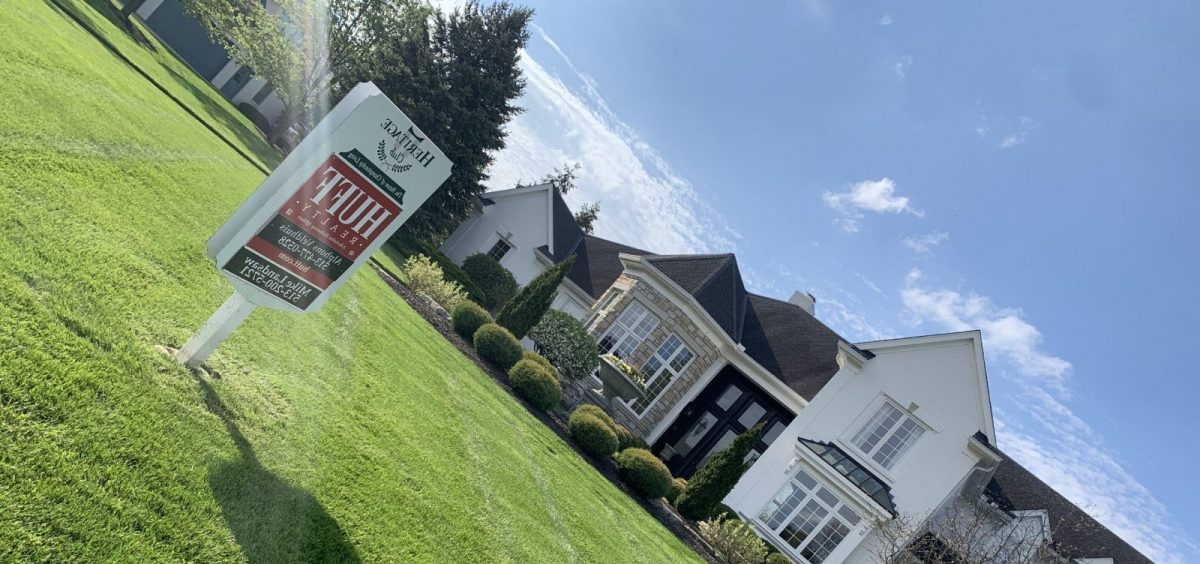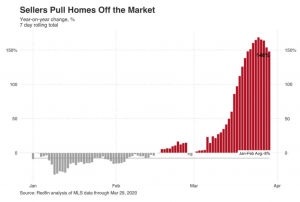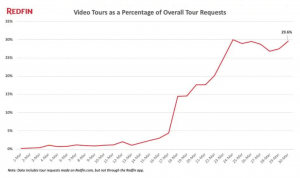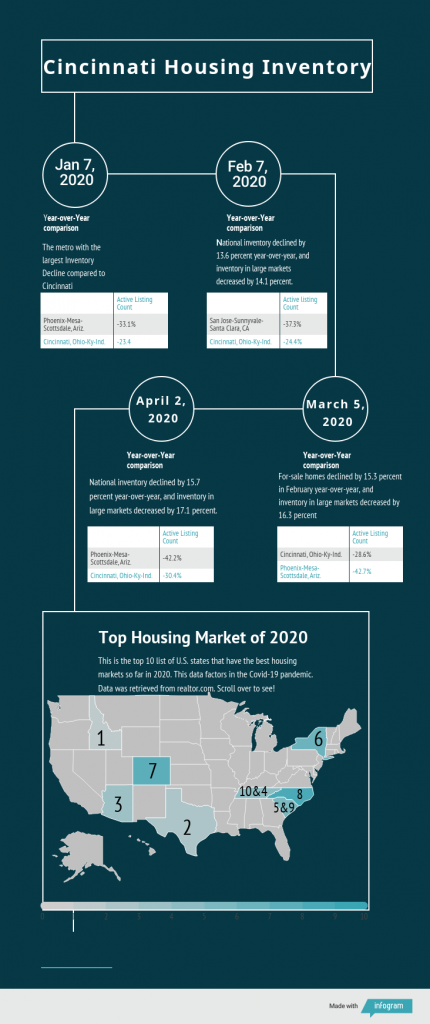
Southern Ohio Housing Market Negatively Impacted by Covid-19
By: Mikaela McGee
Posted on:
CINCINNATI The Cincinnati housing market has been negatively impacted by the COVID-19 pandemic due to stay-at-home orders and unemployment.
With the spread of COVID-19, many sellers have opted to take their houses off the market, which has disrupted the real estate market. Spring is typically the busiest time for the home sales and ERA Realtor, Al Rosser, said although real estate agents are remaining busy many other factors are affecting their sales.

“A lot of agents are very busy actually,” said Rosser. “They are busier than they were prior to the stay-at-home order. However, even though they’re busy there is more limited inventory.”
Around a month ago, home sales in Cincinnati were the best they’ve been since 2006, according to Cincinnati’s Board of Realtors.
Although agents still have clients who are buyers, it is very tough to find houses for those buyers because of many sellers delisting their houses. Realtors.com reported the number of new listings across the country is about 30 percent lower than this time in 2019.

Locally, the number of listings has gone down every month since January when COVID-19 first became an issue in the U.S. Rosser said this can be frustrating when it comes to finding the right house for buyers.
“A lot of agents have not been able to find the types of houses their buyers want because a lot of sellers have decided not to put their house on the market because of the stay-at-home order,” said Rosser. “They don’t want a bunch of people walking through their house.”
Marcia Ray, a Cincinnati resident who recently delisted her house, said she had been trying to sell for three months when COVID-19 hit. She said the pandemic made selling nearly impossible and although she tried to keep her house up for sale, ultimately it was too difficult.
“I was extremely hesitant to keep my house on the market at an uncertain time like this,” said Ray. “My entire

family is at home so the thought of inviting strangers into my house just did not sit right with me. The risk of infection was way too high.”
Real estate sales are considered an essential business, so realtors are not subject to Ohio’s stay-at-home order. But because of the high risk of infection, many realtors are doing no-touch walk-throughs where they’re wearing gloves, masks and shoe covers during their showings along with limiting the number of guests.
They’re also doing a lot of virtual showings to limit contact with people. Redfin real estate brokerage had a nearly 500 percent increase in requests for agent-led video home tours during the end of March.
“I did have my realtor do a few virtual tours of my house before taking it off the market, but even that was stressful,” said Ray. “I think it was a very unique experience, but I don’t believe a lot of people enjoy not physically seeing the house they’re going to be spending thousands or millions of dollars on. I felt it was best to delist until I could actually show buyers the house for them to see, feel, smell, and touch.”

Besides the fact that virtual tours lack the physical aspect of in-person tours, Rosser added that virtual tours can also lack honesty. As real estate agents, it is their job to try to sell their clients’ houses to the best of their ability.
“We’re trying to show the house in the best light and we’re not showing all the things that might hinder the sell of the house, like a crack in the wall,” said Rosser. “In pictures, buy

ers can’t see things like that as opposed to when they actually walk through the house.”
What was on track to be a seller’s market may be flipping to a buyer’s market because of COVID-19, as the number of buyers decreases, and inventory declines. But also, it could be a lose-lose situation.
“I don’t know when I’m going to put my house back on the market, but I know it will not be anytime soon,” said Ray. “It just seems like a horrible time to buy or sell, honestly. For sellers, we hardly have any buyers interested at a time like this, and with buyers, they may have to settle for a home they don’t want. It’s just a very unfortunate situation that nobody can do anything about.”
The future of real estate seems to be very unclear. Multiple factors are at play, according to Rosser. Interest rates are still low, which could encourage buyers to come out, however, there are many people whose income and employment situation is up in the air.
“I think it will take another 30 days to get a good idea of how real estate is going to be affected,” said Rosser. “Real estate always has a delayed effect versus the other parts of our economy that have a more immediate effect like stores. So overall, it’s very hard to predict and we just need to take it day by day.”

